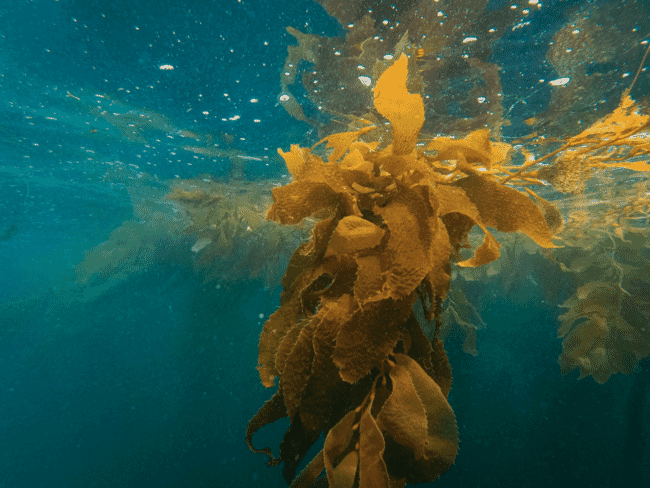
© Kindel Media
The international collaboration, led by Aotearoa New Zealand’s Cawthron Institute, with partners Sequench (NZ), Kelp Forest Foundation (Netherlands), and NatureMetrics (UK), has been funded by Oceankind – an organisation that supports initiatives to improve ocean health.
Project leader, Dr Xavier Pochon of Cawthron Institute, believes that seaweeds, in particular kelp, could be a significant source of the carbon sequestered in the ocean.
Kelp’s contribution to carbon capture
“Up until now, kelp’s contribution to the carbon cycle has remained unknown because we have not had the tools to measure it, so we’ve assembled a project team with the expertise to unlock this important information,” Dr Pochon said in a press release.
“Our challenge is to quantify the kelp-derived carbon in marine sediments which would improve our comprehension of the role kelp forests’ are playing in the global carbon cycle and their potential for climate change mitigation," he added.
The researchers note that traditional methods of measuring kelp-derived carbon in marine sediments, such as stable isotope, pigments, and lipid analysis, have been limited in their ability to accurately detect and identify kelp-derived carbon in marine sediments. This project's approach aims to use the presence of environmental DNA (eDNA), which involves the extraction of genetic material directly from environmental samples without any obvious signs of biological source material.
A library of kelp
“For this project we look forward to working with our world leading research partners to build a kelp genomic library and use leading edge molecular diagnostic tools to estimate the amount of kelp-derived organic matter that is stored in marine sediments and surrounding environments,” explained Dr Pochon.
Promoting the use of eDNA in tackling this challenge, he added: “If this project demonstrates that eDNA is a reliable and traceable marker for tracking giant kelp-derived carbon, it will allow for more accurate assessment of carbon sequestration potential in kelp forests. Successfully identifying and quantifying giant kelp DNA in sediment samples will establish a direct link between source and sink habitats, informing conservation and blue carbon initiatives.”
Elif Demir-Hilton, advisor at Oceankind, said: “We are happy to support this strategic partnership to design and test molecular tools for species-specific carbon tracing. The capacity to track the fate of kelp carbon can inform restoration and conservation efforts and fill an important gap in the toolkit for carbon sequestration.”




